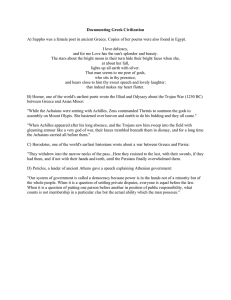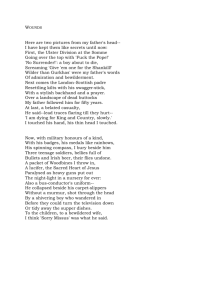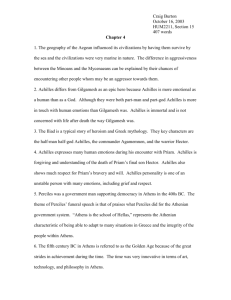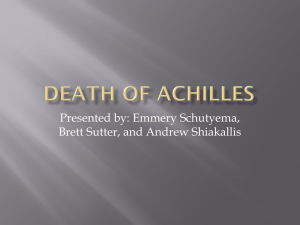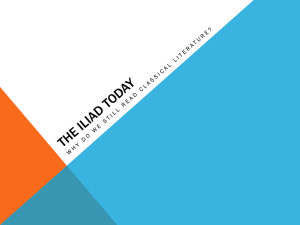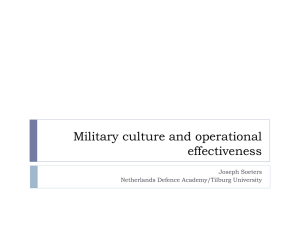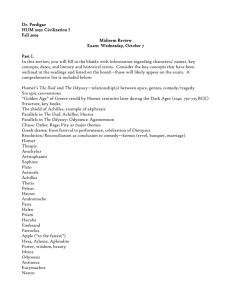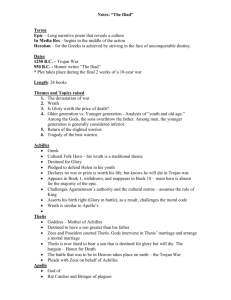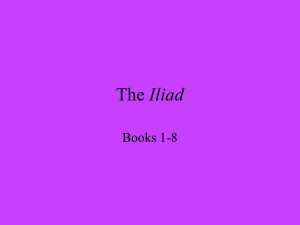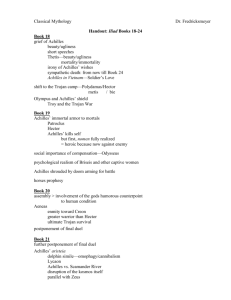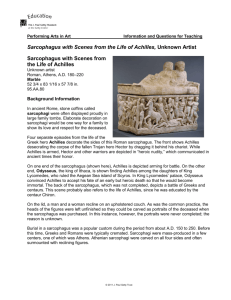précis
advertisement
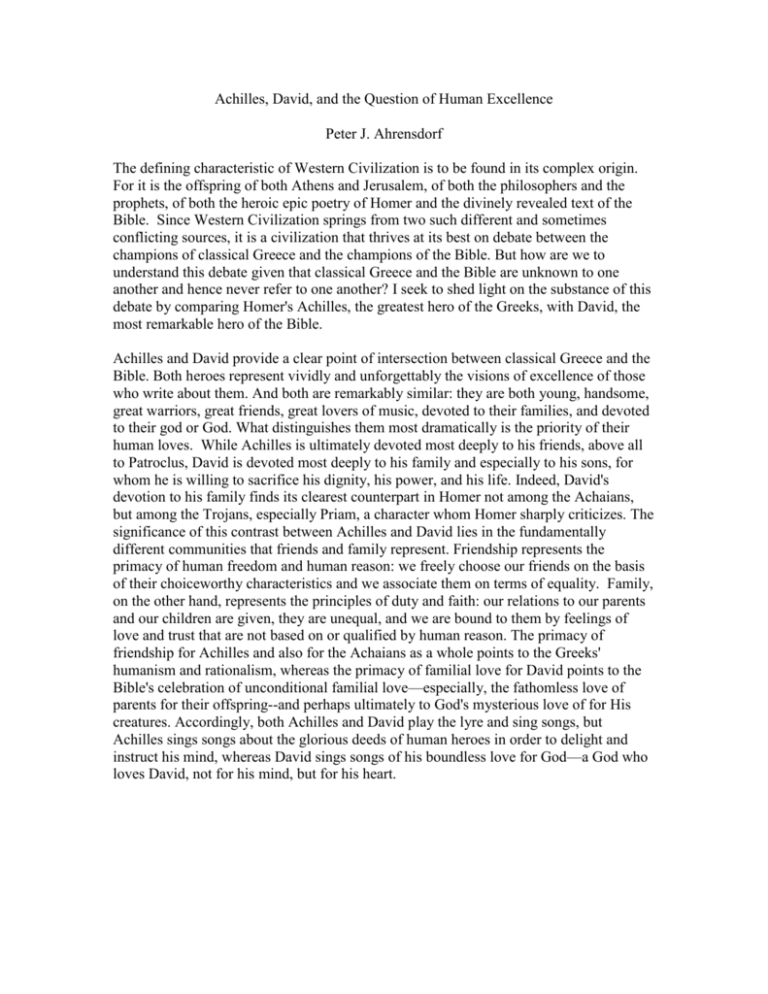
Achilles, David, and the Question of Human Excellence Peter J. Ahrensdorf The defining characteristic of Western Civilization is to be found in its complex origin. For it is the offspring of both Athens and Jerusalem, of both the philosophers and the prophets, of both the heroic epic poetry of Homer and the divinely revealed text of the Bible. Since Western Civilization springs from two such different and sometimes conflicting sources, it is a civilization that thrives at its best on debate between the champions of classical Greece and the champions of the Bible. But how are we to understand this debate given that classical Greece and the Bible are unknown to one another and hence never refer to one another? I seek to shed light on the substance of this debate by comparing Homer's Achilles, the greatest hero of the Greeks, with David, the most remarkable hero of the Bible. Achilles and David provide a clear point of intersection between classical Greece and the Bible. Both heroes represent vividly and unforgettably the visions of excellence of those who write about them. And both are remarkably similar: they are both young, handsome, great warriors, great friends, great lovers of music, devoted to their families, and devoted to their god or God. What distinguishes them most dramatically is the priority of their human loves. While Achilles is ultimately devoted most deeply to his friends, above all to Patroclus, David is devoted most deeply to his family and especially to his sons, for whom he is willing to sacrifice his dignity, his power, and his life. Indeed, David's devotion to his family finds its clearest counterpart in Homer not among the Achaians, but among the Trojans, especially Priam, a character whom Homer sharply criticizes. The significance of this contrast between Achilles and David lies in the fundamentally different communities that friends and family represent. Friendship represents the primacy of human freedom and human reason: we freely choose our friends on the basis of their choiceworthy characteristics and we associate them on terms of equality. Family, on the other hand, represents the principles of duty and faith: our relations to our parents and our children are given, they are unequal, and we are bound to them by feelings of love and trust that are not based on or qualified by human reason. The primacy of friendship for Achilles and also for the Achaians as a whole points to the Greeks' humanism and rationalism, whereas the primacy of familial love for David points to the Bible's celebration of unconditional familial love—especially, the fathomless love of parents for their offspring--and perhaps ultimately to God's mysterious love of for His creatures. Accordingly, both Achilles and David play the lyre and sing songs, but Achilles sings songs about the glorious deeds of human heroes in order to delight and instruct his mind, whereas David sings songs of his boundless love for God—a God who loves David, not for his mind, but for his heart.
